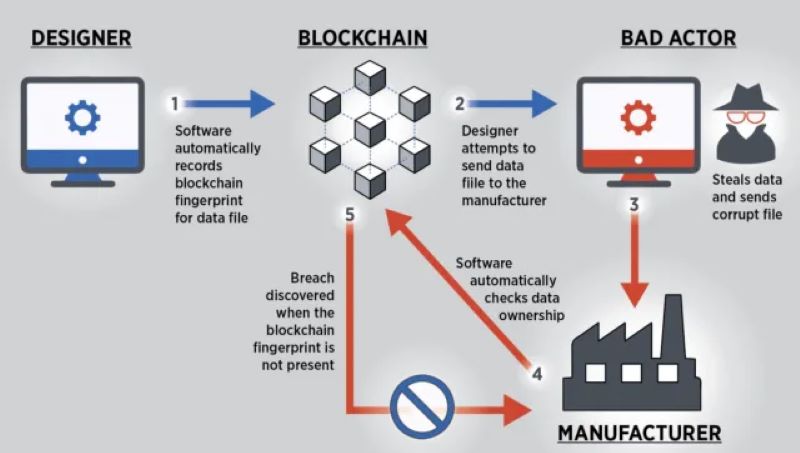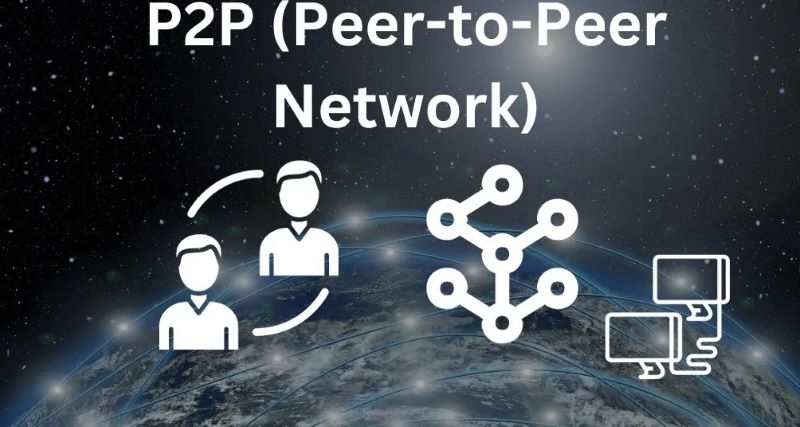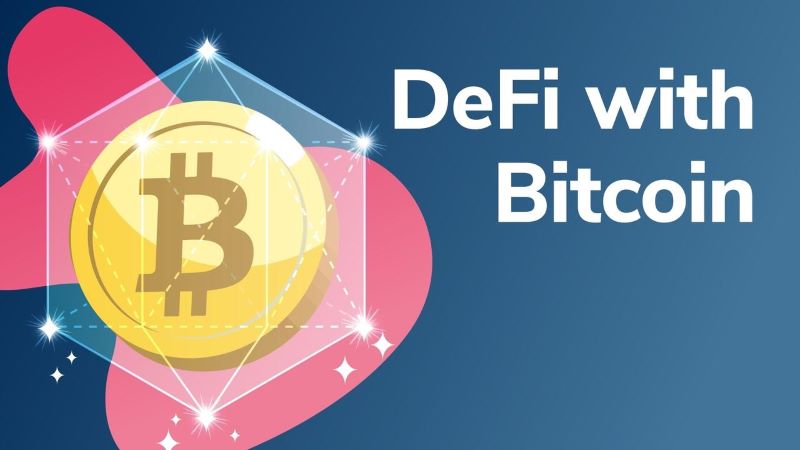Imagine a world where we tap into the group smarts of people everywhere. That’s the heart of a blockchain prediction market. Ordinary folks like you and me make guesses on future events. They could be about politics, sports, or even the weather! The secret sauce? Blockchain tech. It makes everything honest and straightforward. No one person calls the shots. Instead, the crowd drives the outcomes. This isn’t your typical betting pool. It’s betting mixed with tech and trust. Curious how this all ticks? Stick around. I’ll walk you through smart contracts and their role, how oracles keep things fair, and more. Ready to see how your hunches could pay off in the digital age? Let’s dive in.
Understanding Decentralized Prediction Markets
The Role of Smart Contracts in Betting
Imagine you and your friend bet on a game. You trust each other to pay the winner. That’s hard when you bet with a stranger. Smart contracts fix this. They are like robot referees. When people bet on blockchain-based betting platforms, they use smart contracts. These contracts hold the bet money. They also pay the winner.
With a smart contract, no one can run away with the bet money. This is key for crypto prediction platforms. Now, let’s say you bet some cryptocurrency on a big sports game. You use a smart contract. The contract checks the game result. If you win, it gives you the money. If you lose, it gives the money to the other person. Smart contracts don’t make mistakes or cheat. They follow the rules written in them.
Using smart contracts in betting keeps things fair. It’s like having an unbiased judge that can’t be bribed. Decentralized prediction markets use them a lot. They let people bet on anything, from sports to stock prices. All without worrying about the other person backing out.
Oracle Systems: Ensuring Fair Outcome Verification
Now, you may wonder, who tells the smart contract who won? This is where – oracle systems in blockchain come in. They are like messengers. They give the smart contract the real-world info it needs. This could be sports scores, elections, or even weather.
When betting, it’s vital that the info is right. If the oracle gets it wrong, the wrong person might get the money. Oracle systems work to make sure that doesn’t happen. They check lots of sources and use the agreed truth. Good ones are very accurate. They make sure the smart contract knows the real outcome of the event.
With oracle systems, blockchain forecasting applications can be trusted. They allow bets on future events, like who will win an election. The oracles gather the results and tell the smart contracts. So, you can trust that when you win, you’ll get your cryptocurrency prize.
Oracle systems are a big part of why people trust blockchain gaming bets and forecast markets. They put everyone at ease. This tech backs up the promise that, in a fair game, the winner will get their due. And with these systems, decentralized prediction markets can keep growing more popular every day. They show us how tech can make betting clear and fair for everybody.
The Mechanics of Blockchain Forecasting Applications
Augur and Gnosis: A Deep Dive into Prediction Networks
Have you ever heard folks saying two heads are better than one? Well, that’s a big idea behind Augur and Gnosis. They’re online places where many people pitch in to predict stuff – like sports or election outcomes. People bet on forecasts using crypto. Money moves smooth with smart contracts, which are like digital promises that pay out right when the result is known. No need for a middleman; it’s just you, your guess, and the blockchain. That’s peer-to-peer betting in a nutshell.
Now, how do Augur and Gnosis differ? Augur’s big on letting the crowd’s wisdom shine. Everyone chips in their two cents, and these bits stack up to a big picture. Gnosis, on the other hand, focuses on letting experts lead. They guess what will happen next and folks bet on which expert got it right. Both rely on oracle systems for checking outcomes. Oracles are like fact-checkers. They grab info from the real world and toss it onto the blockchain to settle the bets.
Such smart betting can be more right than wrong over time. Why? Because lots of good guesses together tend to hit the nail on the head. Using Ethereum, these markets can work fast and fair. So you know you’re in a square game.
Polymarket Trading: Navigating Market Speculation
Imagine a magic ball that could help you see what might happen tomorrow. Polymarket’s a bit like that. It’s a market where folks bet on future events. But there’s no bookie setting odds here. It’s all on the blockchain. You could bet on anything from the weather to a coin’s price. Polymarket works non-stop, and you can put your money down or pick it back up anytime you want.
How do you start? Easy. Get some crypto, dive into Polymarket, and bet on something you’ve got a hunch about. Bets change as more folks join in, and that shifts the odds. It’s like being in a live game where the score changes by the second. The real clever part is how your bet’s price can go up or down based on what others think. It’s market speculation, but the tech makes it less guessy.
There’s a bit of risk, though. You’ve got to be spot-on about which way the crowd will sway. But hey, that’s half the fun, right? And since it’s all on a blockchain, you can track every bet and every change. That’s some tidy bookkeeping!
Sure, this might sound like high-stakes guessing games, but it’s also serious business. These markets can hit the truth more often than not because they join up lots of smart people’s ideas. And it sure beats flipping a coin!
The Legal and Ethical Aspects of Prediction Markets on Blockchain
Navigating Prediction Market Legality
Imagine a place where you could bet on future events like sports or elections. Everyone there could put their knowledge to the test. Would it not be fun? But, is it legal? That’s what we must think about with blockchain-based betting platforms. Most times, laws change from one place to another. This means we need to be sure about what’s okay and what’s not.
In some places, using the blockchain for betting is totally fine. In others, it’s not allowed. So, before we jump into decentralized prediction markets, we have to check the rules. When we talk about forecast markets and blockchain, we can’t ignore laws. This keeps everyone on the right side of the line. It is a must for those who run these markets to make sure they are fair and follow the law.
Ensuring Trust and Transparency in Peer-to-Peer Wagering
Now, let’s chat about trust. Trust is big when we bet with others. In the world of crypto prediction platforms, we rely on smart contracts in betting. These smart contracts are like robot referees. They check all bets and make sure no one cheats. It’s tech magic!
Scary thoughts like “what if someone takes my money?” can turn people away from these markets. That’s why oracle systems in blockchain are here. They make sure that the bet’s end result is true. For example, let’s say you bet on Polymarket trading. You’d want to know for sure if you won or lost, right? Oracles help us find the truth.
Blockchain forecasting applications put power in our hands. We’re like little bosses, making our own bets without needing a big company. Wagering with cryptocurrency means we don’t have to wait long to get our money. Plus, using Ethereum and prediction markets together lets us do cool things that regular betting can’t offer.
Prediction market legality comes into play here. It’s something we deal with head-on to avoid trouble. Future event wagering blockchain makes betting easy. It keeps our bets safe from naughty hands. We do this with peer-to-peer predictions blockchain. It’s like betting with friends but in the online world.
You might wonder, “How do they set the betting odds?” Well, that’s where blockchain odds-making steps in. It uses numbers and stats to make everything fair. And in decentralized finance (DeFi) markets, it’s no different. You must trust the system.
For these markets to work, every bet must be right on. That’s key in prediction market accuracy. Just guesswork? No, we use brains and data to guess the future—and sometimes, we get it right!
All in all, blockchain gaming bets, and conditional markets on blockchain must play by the rules. Places like Augur prediction market and Gnosis prediction network show us it’s possible. They balance fun with the law. They make us think hard about our choices and put our crypto-skills to the test.
This is why we always check risk assessment and blockchain whenever we get into betting. Every smart contract event outcome matters. So, we want every token-based prediction pool to work without a hitch. Betting on whether your favorite team wins or how high Bitcoin will go becomes a breeze with blockchain market analysis. It’s all about making the best guesses with your crypto—and doing it the right way.
The Future of Event Wagering with Blockchain Technology
Leveraging Ethereum for Advanced Prediction Market Capabilities
Blockchain brings exciting changes to betting on events. Today, people can place bets using Ethereum. This system uses “smart contracts” which make bets safer. Smart contracts work like vending machines; you put in your money and your choice, and if you win, it gives you your prize. This way, there’s no room for cheating because everything follows set rules. Ethereum is perfect for this because it’s built to handle smart contracts very well.
Ethereum and prediction markets go hand-in-hand. With Ethereum, bets are not just about luck. They are about what people really think will happen in the world. For example, folks can bet on sports games, election outcomes, or even TV show finales. Ethereum’s technology helps make these bets fair and quick.
Prediction markets on Ethereum also let many people take part at once. It doesn’t matter where they live. All they need is access to the internet and some Ethereum, and they can join. It’s like a big crowd coming together to guess what will happen in the future. The crowd is often right because they put their own money on their guesses.
The cool part is that we can see what the crowd thinks in real-time. And the crowd’s ideas can help us understand what might happen tomorrow or next year. This is not just for making money; it can help businesses, governments, and everyday people make better choices.
The Integration of Decentralized Finance (DeFi) in Blockchain Betting
DeFi means that financial stuff can happen without a middleman like a bank. In betting, this is a game-changer. DeFi markets on blockchain make it possible for anyone with an internet connection to place bets or invest in outcomes. It’s like opening up betting to the whole world without needing to go through a traditional casino or betting shop.
Smart contracts support DeFi betting by holding all the money people bet. Once the event ends, the contract pays out the winners automatically. This means no waiting for your winnings. You win, you get paid. Simple.
DeFi also means more types of bets. You’re not stuck with simple win or lose. You can bet on specific scores or even things happening during an event. This makes betting much more fun and deep. You can think hard about all the possible outcomes and maybe find a good bet that others have missed.
Plus, blockchain keeps everything safe. It records all bets openly so everyone can see that nothing shady happens. It cuts out the cheats and tricks. This builds trust among everyone in the betting community.
Betting with cryptocurrency, like Ethereum, changes the whole feeling of placing bets. It’s quick, and since it’s digital, you can bet from your couch, the coffee shop, or while riding a bus. Crypto prediction platforms are popping up all over, making it easy to get in on the action.
As the world looks at blockchain forecasting applications, the future of event wagering grows brighter. The crowds and their wisdom, powered by Ethereum and DeFi, are making betting smarter and more open. This is how we bet now and how we will bet in the future. It’s smart, safe, and open to all.
We’ve explored the exciting world of decentralized prediction markets, from smart contracts in betting to fair outcome checks with oracle systems. We dove into how blockchain powers predictions, looking at systems like Augur and Gnosis, and peeked at trading on Polymarket. We tackled tough issues, like the rules of the game and how to keep bets transparent and fair. And we’ve imagined the future, where Ethereum and DeFi shape how we bet on events. The take-home is clear: blockchain is revamping how we predict and bet, making it more open and honest for everyone involved. Keep an eye on this space; it’s only going to grow smarter, more secure, and more widespread. Let’s bet on that!
Q&A :
What is a blockchain prediction market and how does it work?
Blockchain prediction markets are innovative platforms where individuals can place bets or predict the outcome of various events using cryptocurrency. These platforms utilize blockchain technology to facilitate secure, transparent, and tamper-proof transactions. On these markets, users can buy or sell shares in the outcome of an event, with the market price reflecting the collective wisdom about the likelihood of each outcome. Smart contracts automatically execute the market rules and distribute payouts once the outcomes are determined.
What are the benefits of using a blockchain prediction market compared to traditional betting platforms?
Blockchain prediction markets offer several advantages over traditional betting platforms, which include increased transparency, security, and accessibility. The use of smart contracts ensures that payouts are automated and outcomes cannot be manipulated. With no need for intermediaries, transactions costs are reduced, and efficiency is improved. Additionally, these markets are accessible globally, allowing for a more diverse range of opinions and wider market participation.
Can anyone participate in a blockchain prediction market, or are there restrictions?
While blockchain prediction markets aim to be accessible to a broad audience, participation may be subject to legal restrictions depending on the user’s jurisdiction. Some countries may have regulations that restrict the use of such platforms or categorize them as gambling. Users must check their local laws to ensure compliance. Additionally, certain prediction markets may have their own set of rules or qualifications for participants.
How do blockchain prediction markets ensure fair play and avoid manipulation?
Blockchain prediction markets are designed to be self-regulating systems that use smart contracts to ensure that the rules are followed transparently, and transactions are recorded on the blockchain. This immutability prevents tampering with the market outcomes. Moreover, the decentralized nature of blockchain reduces the risk of fraud and collusion among participants. Most platforms also implement various mechanisms to safeguard against market manipulation, including liquidity provisions and stake limits.
What types of events can users predict in a blockchain prediction market?
Users can predict a wide range of events in a blockchain prediction market, from sports and e-sports outcomes, political elections, economic indicators, to more niche events like entertainment award results or product release successes. The diversity of events depends on the specific market and its focus, with some platforms specializing in certain areas while others offer a broad spectrum of prediction options.



